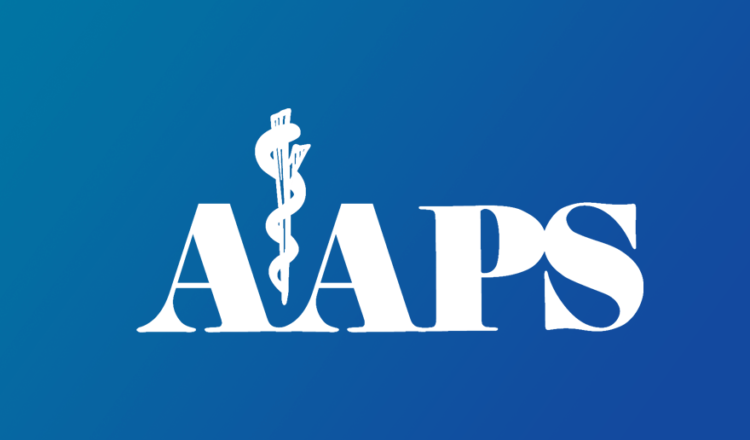Comments on Docket No. CDC-2022-0111
By: Association of American Physicians and Surgeons
To: CDC Advisory Committee on Immunization Practices (ACIP)
October 19, 2022
The Association of American Physicians and Surgeons (AAPS), a non-partisan professional association of physicians in all types of practices and specialties across the United States, urges the CDC Advisory Committee on Immunization Practices (ACIP) to reject any proposal for COVID-19 vaccines to be recommended for routine administration to children or added to any CDC immunization schedule. If the goal of the CDC is to protect children, there is no rational basis for recommending that kids receive a vaccination for COVID. To the contrary, there is myriad objective evidence contraindicating the shots:
No Potential Benefit: In an updated estimate released this month published by Ioannidis et al, the infection fatality rate for COVID in 0 to 19 year olds is 0.0003%.[1] Only 3 out of every 1,000,000 children in this age group that contract COVID will die from the disease. In addition, Makary et al found that “100% of pediatric COVID-19 deaths were in children with a pre-existing condition.”[2] Every death of a child is a tragedy; however, mass vaccination of children is clearly not needed, given such extremely clear statistics demonstrating a lack of severity of COVID in the vast majority of young people. Not to mention that most children already have existing protection: “Nearly 9 in 10 kids under age 17 in the U.S. have antibodies from a previous COVID-19 infection, according to recent CDC data.”[3]
Low to Negative Efficacy: Despite the FDA claiming it would require 50% efficacy to authorize a COVID vaccine,[4] the agency ignored its own threshold by giving the green light to Moderna’s shot that demonstrated merely a 37% efficacy in 2 to 5 year olds. Worse yet, “vaccinated toddlers in Pfizer’s trial were more likely to get severely ill with Covid than those who received a placebo.”[5] Any modest protections the shots do confer in pediatric populations wanes quickly, and vaccine effectiveness even turns negative, studies are finding. For example, a study in JAMA published on October 2, shows negative vaccine effectiveness for symptomatic COVID infection after about 4-months post 2nd dose in kids aged 12-15.[6]

Risk of Harm: While offering little benefit to reducing children’s chances of having a severe course of COVID, significant questions about the safety of the available COVID vaccines, especially in younger patients, exist. The excess risk of myocarditis is one prominent example. “Incidence [of myocarditis following COVID vaccination] is highest for male adolescents ages 12 to 15 years and 16 to 17 years,” found Goddard et al.[7] In addition, Patone and colleagues report: “In men younger than 40 years old, the number of excess myocarditis events per million people was higher after a second dose of mRNA-1273 than after a positive SARS-CoV-2 test.”[8] The long term consequences of these vaccine injuries remain unknown and are concerning. “[P]ost-COVID-19 vaccination myocarditis … may leave abnormalities in the myocardium…; it may therefore be premature to declare it as a complication with a good prognosis. [S]everal reports have emerged showing residual abnormal findings on cMRI at mid-term follow up of post-COVID-19 vaccination myocarditis, including one “report where seven of nine patients had residual abnormal findings at 6-month follow up.”[9]
Myocarditis is far from the only potential risk. Yoshida et al., in a study published in The European Journal of Pediatrics, report: “Individuals with allergic diseases … may experience worsening of their chronic diseases and more frequent adverse reactions after BNT162b2 vaccination than healthy individuals.”[10]
A VAERS query also shows a concerning number of severe adverse reactions and even deaths in patients 17 years and younger following COVID-19 vaccination:

Liability Protections – Benefit to Pharma: The risks of COVID vaccination clearly outweigh the benefits for children. Perversely, perhaps this is precisely why there is a rush by some to add COVID-19 vaccines to the CDC’s list of vaccinations recommended for routine administration to children. Without this status, liability protections currently extended to COVID-19 vaccine manufacturers under the PREP Act will end when the HHS public health emergency declaration expires.[11] However, manufacturers of vaccines that are recommended for administration to children and pregnant women, gain liability protections under the federal Vaccine Injury Compensation Program.[12]
In summary, due to the lack of potential benefit, low to negative efficacy data, and proven risk of harm, the CDC must not push COVID-19 vaccinations into a status that would only help vaccine manufacturers avoid liability for their ineffective and potentially dangerous products, to the detriment of children.
[1] https://www.medrxiv.org/content/10.1101/2022.10.11.22280963v1
[2] https://www.medpagetoday.com/opinion/marty-makary/93029
[3] https://www.webmd.com/lung/news/20221007/eighty-six-percent-kids-have-covid-antibodies-from-infection
[4] https://www.fiercepharma.com/vaccines/fda-to-require-at-least-50-efficacy-for-covid-19-vaccines-wsj
[5] https://wsj.com/articles/why-the-rush-for-toddler-vaccines-covid-pandemic-children-fda-pfizer-moderna-medicine-evidence-11656951993
[6] https://jamanetwork.com/journals/jama/fullarticle/2792524
[7] https://www.acpjournals.org/doi/10.7326/M22-2274
[8] https://pubmed.ncbi.nlm.nih.gov/35993236/
[9] https://onlinelibrary.wiley.com/doi/full/10.1111/ped.15291
[10] https://link.springer.com/article/10.1007/s00431-022-04643-0
[11] https://www.phe.gov/emergency/events/COVID19/COVIDVaccinators/Pages/PREP-Act-Immunity-from-Liability-for-COVID-19-Vaccinators.aspx




